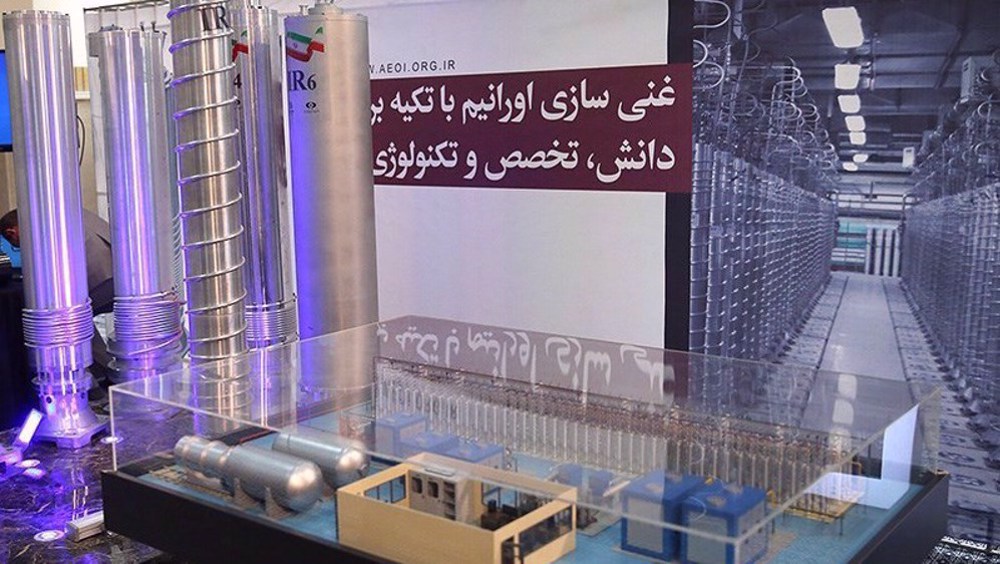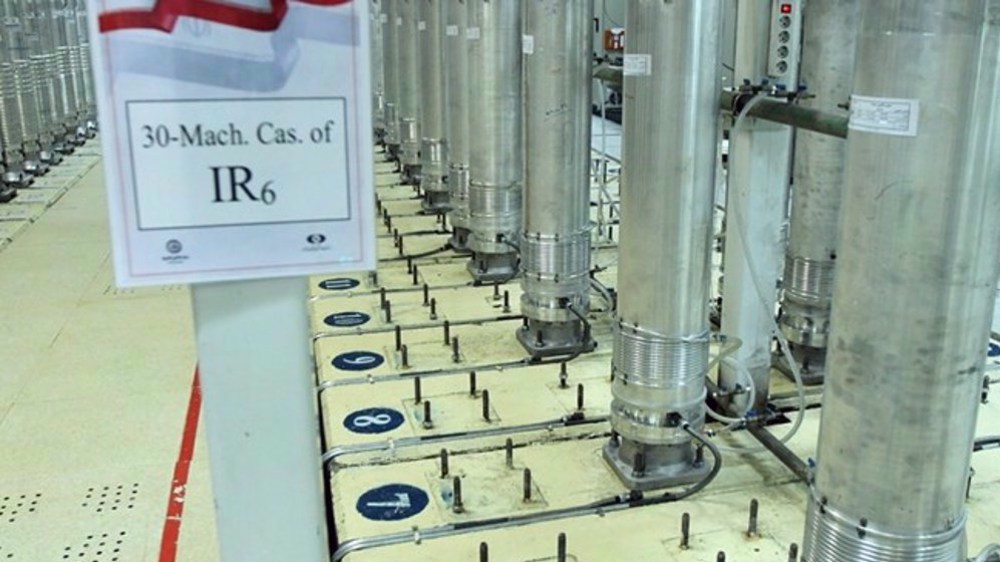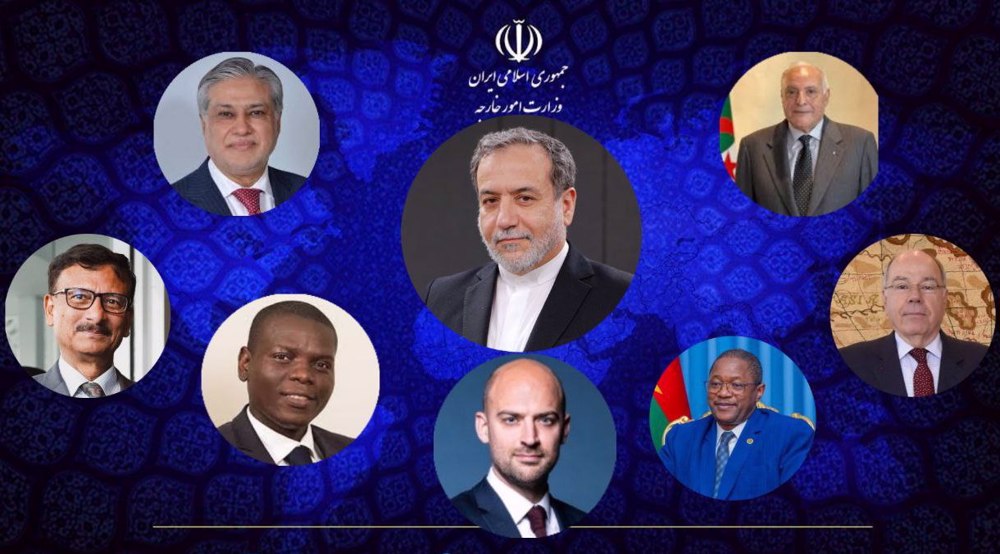China vows to step up effort to safeguard, implement Iran nuclear deal
China says it will continue to uphold and implement a multilateral nuclear agreement reached between Iran and the P5+1 group of countries as a May 12 deadline is looming for US President Donald Trump to decide on staying in the deal.
Speaking at a press briefing on Friday, a spokeswoman for Chinese Foreign Ministry, Hua Chunying, expressed Beijing's support for the nuclear agreement, officially known as the Joint Comprehensive Plan of Action (JCPOA).
"The Joint Comprehensive Plan of Action on the Iran nuclear program is a multilateral agreement reached by six countries, European Union and Iran after negotiations. It has also been endorsed by the United Nations Security Council in Resolution 2231," Hua said.
She urged all signatories to the nuclear accord to improve dialogue and cooperation with the purpose of safeguarding it.
"China maintains that relevant parties should strengthen dialogue and coordination in current situation to continue to safeguard the JCPOA’s seriousness and completeness," the spokesperson said.
Hua emphasized that Beijing would "take a fair and responsible attitude to make further contributions to preserving and implementing the JCPOA."
Her comments came a day after Maria Zakharova, the spokeswoman for the Russian Foreign Ministry, said Moscow sees no room for amendments or additions to the 2015 nuclear deal.
“We are seriously concerned by all of this - I am referring to comments made by the presidents of the United States and France about the Joint Comprehensive Plan of Action on the Iran nuclear program. Russia has repeatedly said that there is no possibility for some kind of revote for this document, changing or enlarging it,” she said.
French President Emanuel Macron paid a visit to Washington this week amid European efforts to dissuade Trump from killing the JCPOA.

The US president is a stern critic of the nuclear deal, reached between Iran and the five permanent members of the UN Security Council -- the United States, France, Britain, China, Russia - plus Germany.
Under the agreement, nuclear-related sanctions put in place against Iran were lifted in exchange for curbs on Tehran's nuclear program.
He has repeatedly described the JCPOA, which was negotiated under his predecessor, Barack Obama, as “the worst and most one-sided transaction Washington has ever entered into” and threatened to tear it up.
In January, the US president decided to stick with the JCPOA, but gave the European signatories a May 12 deadline to “fix the terrible flaws” of the accord or he would withdraw Washington from the deal.
Other P5+1 parties to the agreement have all criticized Trump’s hostile views, saying the deal is sound and has proven to be functioning. Iran also says it will not accept any change to the agreement.
Speaking at the US Congress Wednesday on the final day of a three-day state visit, Macron said his country would not leave the agreement and added that the JCPOA was not addressing what he called “all concerns” but stressed that the deal could not be ditched.
"We signed it, both the United States and France," the French president said. "We should not abandon it without having something substantial and more substantial instead. That's why France will not leave the JCPOA, because we signed it."
Iran has repeatedly warned that any failure to respect the multinational agreement would have grave consequences, stressing that there is no alternative to the nuclear accord.
Iran's nuclear chief said on April 21 that the Islamic Republic's response readiness would "startle" the United States should it decide to pull out of the JCPOA.
"We hope that the other side makes a wise decision and avoids carrying out an action that would cause a nuisance for itself and others," Head of the Atomic Energy Organization of Iran (IAEA) Ali Akbar Salehi told reporters.
Read more:
- 'Either all or nothing' on Iran nuclear deal: Zarif
- Merkel: Better to have Iran deal even if it is imperfect
- Any violation of Iran deal entails grave consequences: President Rouhani
- Keeping Iran nuclear deal in place vital for EU: Mogherini
VIDEO | Press TV's news headlines
VIDEO | US-Israeli genocide: Will Gazans see ceasefire deal achieved?
VIDEO | Grief strikes Parachinar: 44 lives lost in terror attack
VIDEO | Yemen’s armed forces target Israeli airbase amid nationwide pro-Palestinian rallies
Putin vows more test of new hypersonic missile
VIDEO | Jordanians continue rallies to denounce Israeli genocide in Gaza, Lebanon
6 Israeli soldiers commit suicide: Reports
Diplomat discourages recourse to pressure, intimidation, confrontation against Iran













 This makes it easy to access the Press TV website
This makes it easy to access the Press TV website